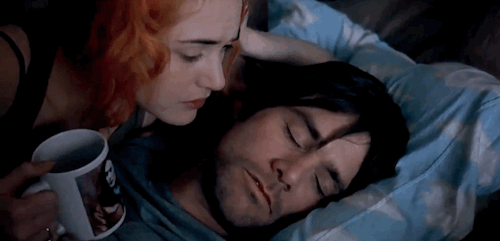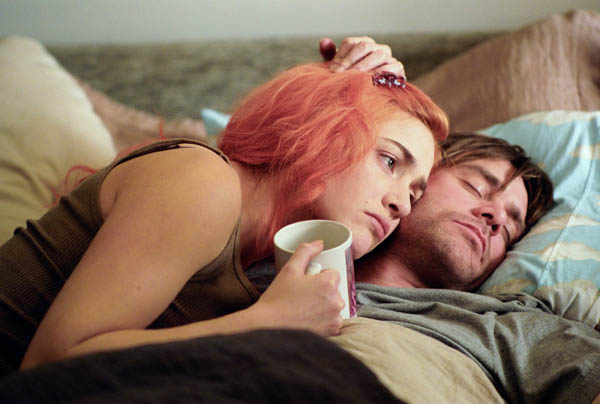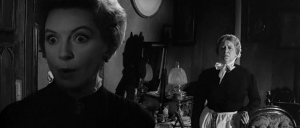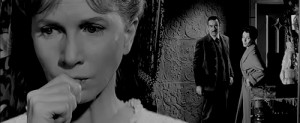A Stylist Hits His Stride (ETERNAL SUNSHINE OF THE SPOTLESS MIND)
From the March 19, 2004 issue of the Chicago Reader. — J.R.

Eternal Sunshine of the Spotless Mind
**** (Masterpiece)
Directed by Michel Gondry
Written by Charlie Kaufman, Gondry, and Pierre Bismuth
With Jim Carrey, Kate Winslet, Elijah Wood, Mark Ruffalo, Kirsten Dunst, and Tom Wilkinson.
How happy is the blameless vestal’s lot!
The world forgetting, by the world forgot.
Eternal sunshine of the spotless mind!
Each pray’r accepted, and each wish resign’d;
Labour and rest, that equal periods keep;
“Obedient slumbers that can wake and weep;”
Desires compos’d, affections ever ev’n,
Tears that delight, and sighs that waft to Heav’n.
–Alexander Pope, “Eloisa to Abelard” (1717)
Only once in a blue moon does a screenwriter who isn’t a director become known as an auteur. Plenty of distinctive movie writers have reputations as actors or as actor-directors, starting with such giants as D.W. Griffith, Charlie Chaplin, and Erich von Stroheim, but they’re rarely celebrated for their writing. You have to go back to Robert Towne, who’s done only a little directing, and Paddy Chayefsky, who never did anything but write and produce, to find auteurs known mainly as writers.
A Chayefsky movie isn’t hard to identify, but I think it’s safe to say that these days a Charlie Kaufman movie is even more recognizable. Read more





